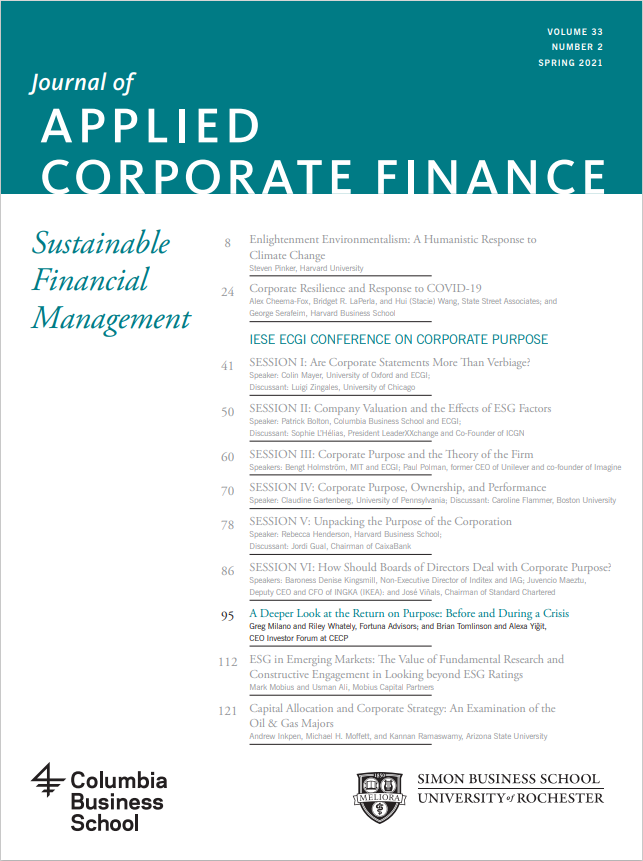New research on the link between corporate purpose and value creation published in the Journal of Applied Corporate Finance by Fortuna Advisors and the CEO Investor Forum at CECP, a global organization preparing corporate leaders to navigate the quickly changing financial landscape and purpose-driven economy, analyzed consumer perceptions of purpose across 13 attributes to show that companies leading on purpose significantly outperformed those scoring low on purpose as the social and economic impact of COVID played out during 2020.
Key findings for “high purpose” companies include:
- 14.1% greater revenue growth
- 7.7% higher operating profitability
- 5.8% better returns on capital
- 8.9% stronger residual cash earnings margin (a cash-based economic profit measure)
- 6.2x turns higher TEV/EBITDA valuation multiple
- 34.7% greater annualized total shareholder return (TSR)
The research highlights select companies scoring high on attributes of brand purpose, including Nike for having “a point of view on social issues,” Tesla for “innovating with purpose”, and UPS for having “a commitment to society.”
Prior to the COVID pandemic, companies with high purpose brands doubled market value 3.1x faster than those with low purpose brands. During 2020, the widening performance gap meant high purpose companies accelerated to doubling market value 3.9x faster, or once every 1.8 years while low purpose brands required 7.1 years to achieve the same.
The research provides empirical support to the growing debate on whether purpose and profit can coexist in the public corporation. By applying a value creation lens to the impact of purpose on consumer relationships, the research demonstrates that purpose can create enduring value for both stakeholders and shareholders. The study concludes with practical steps for corporate managers to operationalize purpose in decision-making and resource allocation.


